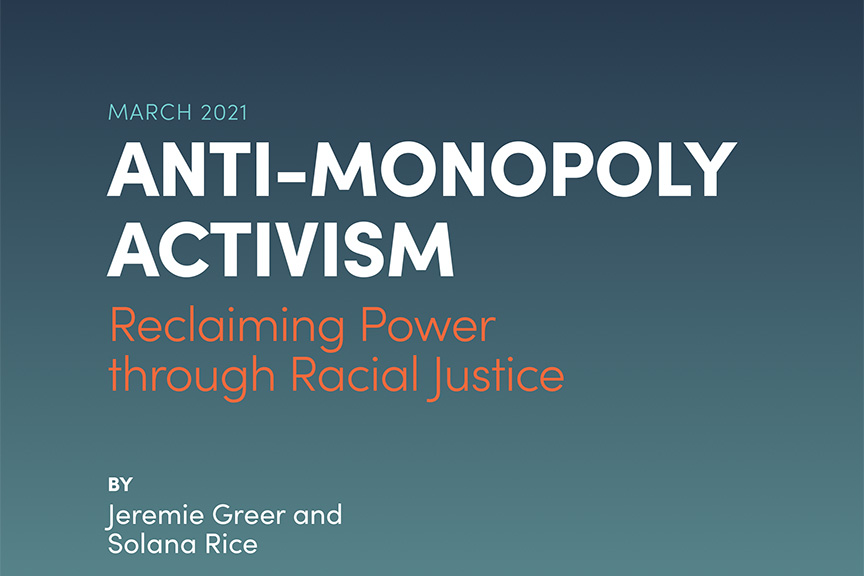By Alexa Frangopoulos
Anti-Monopoly Activism: Reclaiming Power through Racial Justice by Jeremie Greer and Solana Rice for the advocacy group Liberation in a Generation emphasizes the intersection of race and anti-monopoly problems and proposed solutions. This paper highlights a critical topic within the movement, effectively communicating how the insufficient enforcement of antitrust laws disproportionately impacts communities and individuals of color and the need for inclusive policies to address the issue.
First, the paper discusses the background and current situation around the antitrust movement. The authors define monopolization and antitrust enforcement, summarize the history in the late 19th century, and provide examples by listing notoriously concentrated and monopolized industries like big tech, pharma and agriculture.
Greer and Rice build upon the basics to show the consequences of unenforced antitrust laws. They explain how the impacts unproportionally affect people of color, widening the racial wealth gap, limiting access to capital and diminishing wages and the power of workers. Liberation in a Generation even created a term Oppression Economy to describe an economy that “uses the racist tools of theft, exclusion and exploitation to strip wealth from people of color, so that the elite can build their wealth.” This definition is used to illustrate how the current system rewards corporations that monopolize, excluding people of color from the opportunity to gain wealth while the rich white earners, especially CEOs, continue to accumulate wealth.
The last section offers considerations and suggestions for policymakers to weigh while creating laws to mitigate monopolization. The authors describe which government organizations have jurisdiction over antitrust laws to illuminate the process and various avenues for reform. The paper offers detailed solutions including to strengthen and better enforce existing antitrust laws, enhance worker power, break up the corporations, add public competition and create new agencies and more oversight.
Overall, this paper is fantastic at communicating the disparate impact of monopolization and lack of antitrust regulation. Grassroots organizations led by people of color are essential to push the anti-monopoly movement along and ensure that the solutions proposed and hopefully adopted address the disproportionate negative impact on communities of color. AMIBA recognizes the need for the intersectional consideration in the anti-monopoly movement and is incorporating it into our own campaign. We encourage all to read Anti-Monopoly Activism: Reclaiming Power through Racial Justice linked below.
Get your copy of “Anti Monopoly Activism” here, and check out AMIBA’s white paper on the topic here.

